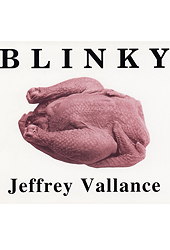Law
Warning required before crime
January 1973: Texas State Rep. Jim Kaster filed a bill that would have required criminals to give their victims twenty-four hours notice before they committed a crime. Argued Kaster, "Obviously the criminal is not going to do it, but this would be another punishment that could be added to the penalty." No surprise, the bill was defeated.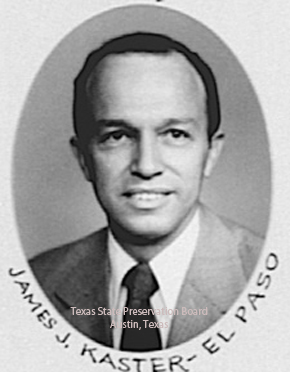
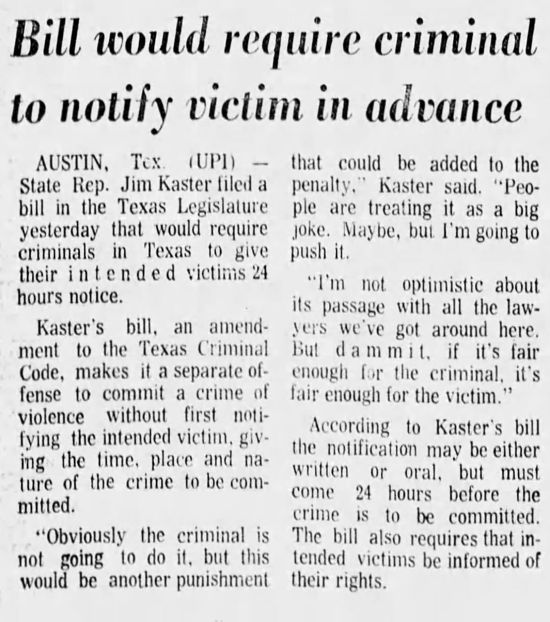
Arizona Republic - Jan 19, 1973
And this article gives a little more info:
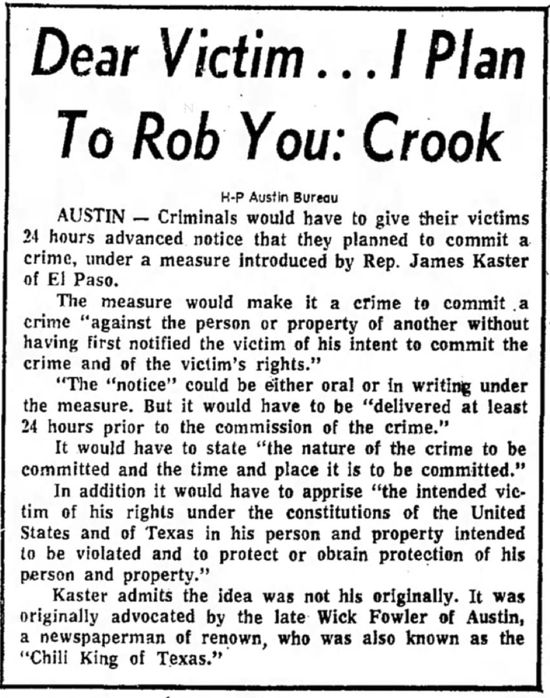
El Paso Herald-Post - Jan 19, 1973
Posted By: Alex - Sat Jun 11, 2016 -
Comments (10)
Category: Crime, Law, 1970s
Japanese Obscenity Bust, Explained

Do you recall the story about the female Japanese artist who got prosecuted for making a kayak molded into the shape of her vagina?
Now she tells her own tale in a new book.
Posted By: Paul - Tue May 10, 2016 -
Comments (7)
Category: Art, Law, Asia, Genitals
The Wyld Home for Errant Women
When George Albert Wyld of Australia died on January 23, 1911, his will instructed that his estate should be left to his children, but when they had all died it should then be applied to:Wyld's children all passed away by 1949, at which time the executors of his estate applied the remaining money to an "institution superintended by Miss Cocks" adjoining the Methodist Home for Girls at Brighton.
Wyld had five children, but had never married any of their mothers. This probably had something to do with his unusual bequest.


The Adelaide Advertiser - Mar 18, 1949
Posted By: Alex - Sun Feb 14, 2016 -
Comments (5)
Category: Law, 1910s
The minister who didn’t leave
Jackson, Mississippi. 1966: Rev. Dennis McDonald, being a new preacher in town, visited local residents with his two sons to invite them to his church. But he was shocked (shocked!) when he paid a visit to Mrs. Pendergrass and found her sunbathing outside in her birthday suit. Naturally he had to report her to the police, who fined her $50.But Mrs. Pendergrass appealed the fine, and the court took her side, noting that a) she was on her own property, not in public; and b) if the minister was so shocked, why did he hang around at her house for 45 minutes?
You can read the court case here: MRS. ROY C. PENDERGRASS v. STATE OF MISSISSIPPI.

Kokomo Morning Times - Dec 20, 1966
Posted By: Alex - Wed Jan 20, 2016 -
Comments (12)
Category: Law, 1960s
Paring knives are not arms
After Wayne Anthony Evans was pulled over for speeding by a Seattle police officer, a paring knife was found in his pocket, and he was arrested for possession of a fixed-blade knife. In his defense, Evans argued that the Seattle municipal code banning fixed-blade knifes violated his constitutional right to bear arms.
Not so, the Washington Supreme Court recently decided. It didn't consider the constitutionality of the municipal code itself, but (looking narrowly at the facts of this specific case) decided that there was no historical evidence that paring knives are "arms." Therefore, they can be banned.
If Evans had been carrying a bayonet, perhaps the outcome of the case would have been different.
via Wash Post
Posted By: Alex - Mon Jan 04, 2016 -
Comments (5)
Category: Law, Weapons
Skeet Shoot

So, as it turns out, its illegal to shoot down a drone even if its spying on you. Same penalty as shooting at an airplane.
Posted By: Alex - Sat Dec 26, 2015 -
Comments (11)
Category: Drones, Law
Litigation Through Poetry: Or, Texas Is Hell
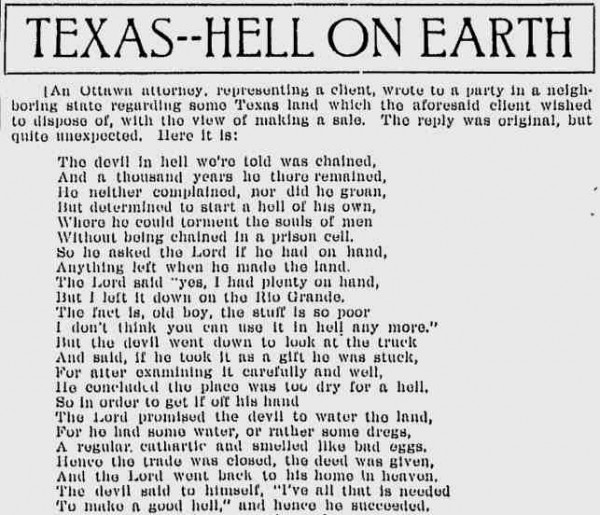
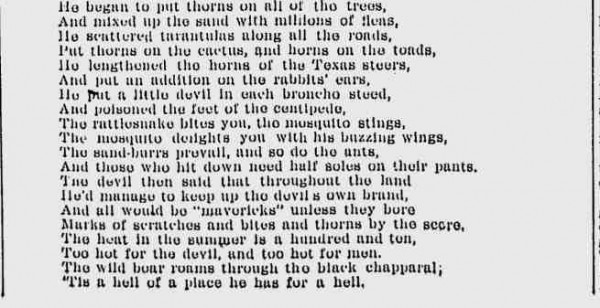
Source.
Posted By: Paul - Wed Jul 22, 2015 -
Comments (4)
Category: Law, Nature, Regionalism, Religion, Poetry, 1900s
Indiana legalizes sawed off shotguns

Beginning July 1st we can own one as long as it is manufacture made. Mine is already ordered.
Posted By: BrokeDad - Sat Jun 27, 2015 -
Comments (4)
Category: Guns, Law
Tax Per Mile

Oregon is running a voluntary per mile travel tax instead of the current per gallon standard. The volunteers do not have to pay the gas tax while participating in the study.
Does anyone really believe the gas tax will go away if the per mile tax is enacted? Does any tax ever go away once it is put in place? So if this goes through we may as well expect both.
What a great way to control travel, especially for the poor. This idea is a greater threat to personal liberty than the Patriot Act. It is much easier to control a non-moving populace.
Posted By: Alex - Wed May 20, 2015 -
Comments (14)
Category: Government, Regulations, Law, Motor Vehicles, Cars, More Things To Worry About
Attorney Larry L. Archie

Via a chain of transmission that extends through our own Chuck Shepherd and longtime WU-vie Professor Music, we get the astonishing picture above, the kind of advert favored by Attorney Larry L. Archie.
Posted By: Paul - Thu May 07, 2015 -
Comments (6)
Category: Eccentrics, Law, Advertising

| Who We Are |
|---|
| Alex Boese Alex is the creator and curator of the Museum of Hoaxes. He's also the author of various weird, non-fiction, science-themed books such as Elephants on Acid and Psychedelic Apes. Paul Di Filippo Paul has been paid to put weird ideas into fictional form for over thirty years, in his career as a noted science fiction writer. He has recently begun blogging on many curious topics with three fellow writers at The Inferior 4+1. Contact Us |

